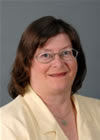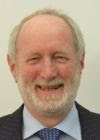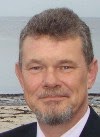Scottish Parliament
Thursday 29 June 2006
[THE PRESIDING OFFICER opened the meeting at 09:15]
... ... ...
International Development and Co-operation with Malawi
The Deputy Presiding Officer (Trish Godman): The next item of business is a debate on international development and co-operation with Malawi.
14:58
... ... ...
16:14
Stewart Stevenson (Banff and Buchan) (SNP): We can take great pride in the institutional links that are now working between our country and Malawi. I quote the First Minister, Jack McConnell, with approbation. He said:
"If we are not part of the solution in Africa ... we exacerbate the problem." —[Official Report, 1 June 2005; c 17383.]
I agree, and I suspect that everyone else does.
However, it is the personal links that disperse the value of our connections throughout society both in our country and in Malawi. Those links entrench the value beyond the period in office of a single Government and beyond a single session of Parliament.
In my case, the links are twofold. Dr Hastings Banda won his first election here in Edinburgh. He stood for, and won a seat on, the council of the University of Edinburgh union when my father was the president of that body. I have to say that they learned different lessons from their experience. Hastings Banda learned to be captivated by the power of elected position and became a vicious despot. My father was rather different. He was always conscious of duty over power. That is a lesson that we must all learn with humility while in office. It is a gey hard task that has to be learned by each new generation of politicians. We can say with honesty that there are encouraging signs of that approach taking root in Malawi.
My other personal connection—a relatively small one—is through a gentleman called Dr Wilson, who was my father's locum. My father was a general practitioner in Fife and Dr Wilson came for a few weeks in the summer each year so that my father could get away. Dr Wilson happened to be Livingstone's grandson, so occasionally we talked about life in Africa.
I turn to the challenges and the new responses that we have to think about. First, it is a myth that trade solves all the problems. The Department for International Development in London states on its website:
"A 'successful' outcome to the World Trade Organisation ... round is likely to result in Malawi losing 11% of its export earnings. Malawi has lost its preferential access for sugar to the European Union ... Malawi's main export is tobacco whose market is vulnerable to increasingly widespread health concerns."
Progress brings challenges, and we must not assume that simple-minded knee-jerk reactions will be the solution. The absence of trade is of course a problem, but it is also an opportunity. The imposition of a perfect free market is a bigger challenge than steady, careful progress.
Another myth is that money solves the problem. Used wrongly, money can make the problem a great deal worse by separating those who have in society even further from those who have not. In local manufacturing, money is often used to import products—often engineering products—that could more appropriately be produced locally, which would build capacity and be sustainable in the long term.
There are other myths about money. One of the great myths played a part in one of the great lost opportunities for the banking industry. When apartheid ended in South Africa, none of the banks would go into Khayelitsha or the other squatter camps and lend people money for houses. They thought that that was a no-no. The reality was that people who had not used credit before were always desperate to repay loans that were made to them, and the indigenous banks that sprung up have been successful. The microcredit movement, which exists throughout the world, is the way forward for money in less developed economies. I commend it—and any support that we can give it—to the minister. Although money is valuable, our individual time is invaluable by comparison.
Another myth is the idea that we in the west innovate and people in the less developed world do not. I point to the honeybee network, which began in India, primarily in Gujarat province, but is spreading outside India. It is a network of village innovators who produce simple innovations. The network is designed to ensure that the lessons that are learned in one village are passed on to others. It is being mentored, led and supported by some of the top profs at the Massachusetts Institute of Technology. By using the modern communications that are available, they need not visit Malawi to mentor and support innovation in villages.
I will give examples of what has happened. A power-free water cooler has been developed and is being sold abroad. A motorcycle has been adapted to create a tractor from almost no money, simply by recycling. A new design of pulley makes it possible to draw water from a well in a way that is more effective and involves less effort.
The third world has much to teach us. Perhaps one point is that we must stop calling it the third world, because it will overtake us by avoiding some of the mistakes that we have made. We must support it in that journey. Only a few of us will make the journey to Malawi in body, but we can all connect in our minds and in our spirit, and we must do that.
16:21


 Born in 1946 and brought up in Cupar, Fife, I was educated at the local school -
Born in 1946 and brought up in Cupar, Fife, I was educated at the local school - 
















